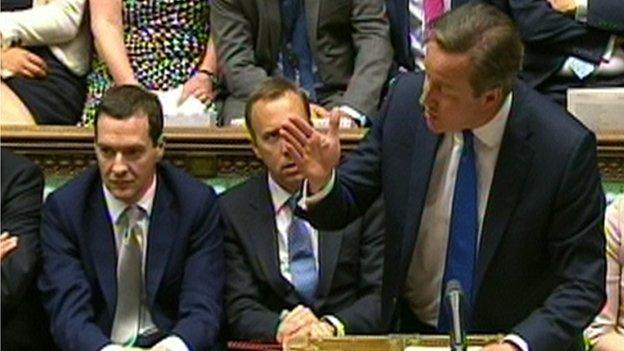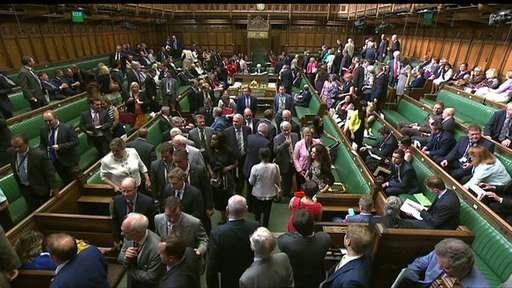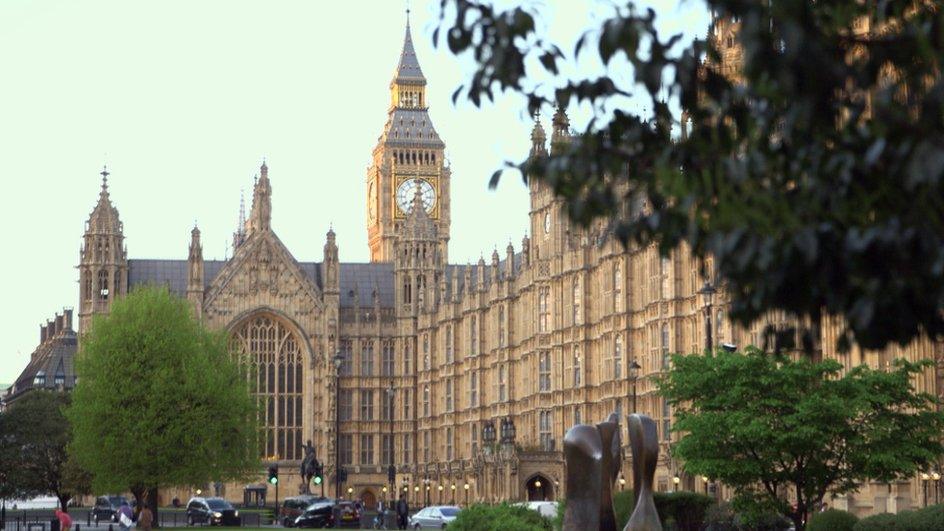PM denies 'second class Scottish MPs' claim
- Published

David Cameron said it was "only fair" that English MPs should also have increased powers
The Prime Minister has dismissed SNP claims that plans for English votes for English laws would create "second class" MPs.
David Cameron said, at a time of increased devolution, it was only right English MPs had a greater say in some matters.
But SNP Westminster leader Angus Robertson said it was "undemocratic".
It comes after a series of opposition amendments to the Scotland Bill were rejected.
At Prime Minister's Questions, Mr Robertson asked the Conservative leader to confirm whether he planned to "exclude Scottish MPs from parts of the democratic process at Westminster that will have an impact on Scotland?"
But Mr Cameron said the proposals would mean that when a bill just affected England, Scottish MPs would only be excluded at the committee stage.
He said all MPs would continue to vote at the report stage and third reading.
He said: "What this is going to introduce, as it were, is a system for making sure that the wishes of English MPs cannot be overruled.
"I think that is only fair in a system when the Scottish parliament, and the Welsh parliament, and indeed the Northern Irish parliament have increased powers."
"Second class status"
But Mr Robertson said Scottish MPs had been "overruled" on the Scotland Bill.
He said: "Not content with outvoting Scottish MPs elected on a mandate to strengthen the Scotland Bill, he's now going to introduce second class status for elected MPs from Scotland on issues that can impact on the Scottish budget."
It comes a day after the Scottish secretary also dismissed accusations that UK ministers were not listening to those who want the Scotland Bill strengthened.
It followed complaints in the Commons and a letter from Deputy First Minister John Swinney suggesting that Scottish proposals are being ignored.
The SNP and Labour backed each others calls for Holyrood to have unrestricted power to create new benefits and top up existing ones -as well as seeking other changes.
But despite a written complaint from the Scottish government that calls from Scottish MPs were being resisted, Mr Mundell said he was listening and would reflect before the next stage of the bill's parliamentary progress later this year.
Mr Mundell has previously said the UK government would not back any amendments to the Scotland Bill, external that were "bad for Scotland".
The bill will give further control to the Scottish Parliament over taxation, VAT revenues and welfare.
- Published30 June 2015

- Published30 June 2015
